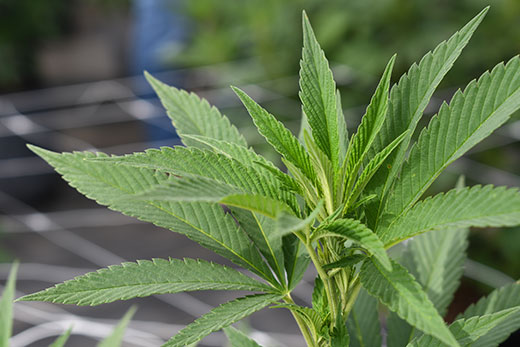Tennessee Proposes New Hemp-Derived Delta THC Regulations

As new cannabinoid products emerge onto the hemp market, lawmakers rush to not only try and understand these new additions but also to update regulations governing how the industry operates. This new Senate bill would aim to regulate new sectors of the hemp industry, including Delta THC cannabinoid products.
Hemp-derived products containing Delta THC cannabinoids have been a hot-button issue for the industry in recent years. Some states have outright banned the production and sale of products containing Delta THC cannabinoids, while others have chosen to pass regulations on the existing market. Senate 378 takes the latter path, updating the existing laws for Tennessee’s hemp industry.
What is Senate Bill 378?
According to documentation from TrackBill, the 11-page document would “regulate the sale and distribution of products containing a hemp-derived cannabinoid”. This bill would update the existing regulations surrounding the hemp industry and its products.
SB 378 is just one in a long line of the drive of various states towards updating hemp industry regulation. While hemp is legal on a federal level, each state has its own laws and regulations governing the industry within the state. If passed, it would cover many of the grey areas within the industry, including Delta THC products.
What would SB 378 Do?
If signed into law, Tennessee Senate Bill 378 would update existing regulations surrounding the hemp industry within state borders. This includes not only how the plant is cultivated, but also the products found on store shelves.
SB 378 outrights several THC cannabinoids within the hemp plant, highlighting where they fall within the new regulatory standards. According to SB 378, cannabinoids such as Delta 8 THC, Delta 10 THC, THCp, THCv, and THCa would be classified as “hemp-derived cannabinoids”. While this may not sound like a huge deal, this classification clarifies what these THC cannabinoids are classified as under Tennessee state law.
The bill also outlines an additional 5% (of the sales price) on any products that contain hemp-derived cannabinoids. This tax would be due on the first of each month. According to SB 378, “All revenue generated from the tax levied pursuant to subsection must be deposited into a special account in the state general fund and allocated to the department of agriculture to be used exclusively for the regulation of products containing a hemp-derived cannabinoid in this state.”
Packaging and Testing regulations would also be updated if SB 378 is signed into law. Requirements such as child-resistant packaging, labeling, Certificate of Analysis (or COA for short) expiration dates, and COA accessibility via scannable codes would all be required if the bill passes. Marketing/Advertising requirements would also be updated with SB 378.

SB 378 would have a large impact on Tennessee’s hemp industry. This bill would touch nearly every sector of the hemp industry, from cultivation clear through the moment it is placed into a customer’s hand alongside the receipt. To read SB 378’s full text, please visit TrackBill.
Where SB 378 Stands
Tennessee’s SB 378 passed on April 20th, 2023 with 92 aye’s and only 3 nays (with one senator marked as not present). As of May 3rd, 2023, SB 378 has been transmitted to the state’s governor for action. For more information and updates regarding SB 378, please visit the Tennessee General Assembly website.
How to Get Involved with SB 378
Do you feel strongly one way or another about Tennessee’s Senate Bill 378? State residents are encouraged to voice their opinions to their elected senators in a polite manner. To find out who represents you in the Tennessee Senate, please visit the Tennessee State Senate website for more information.





